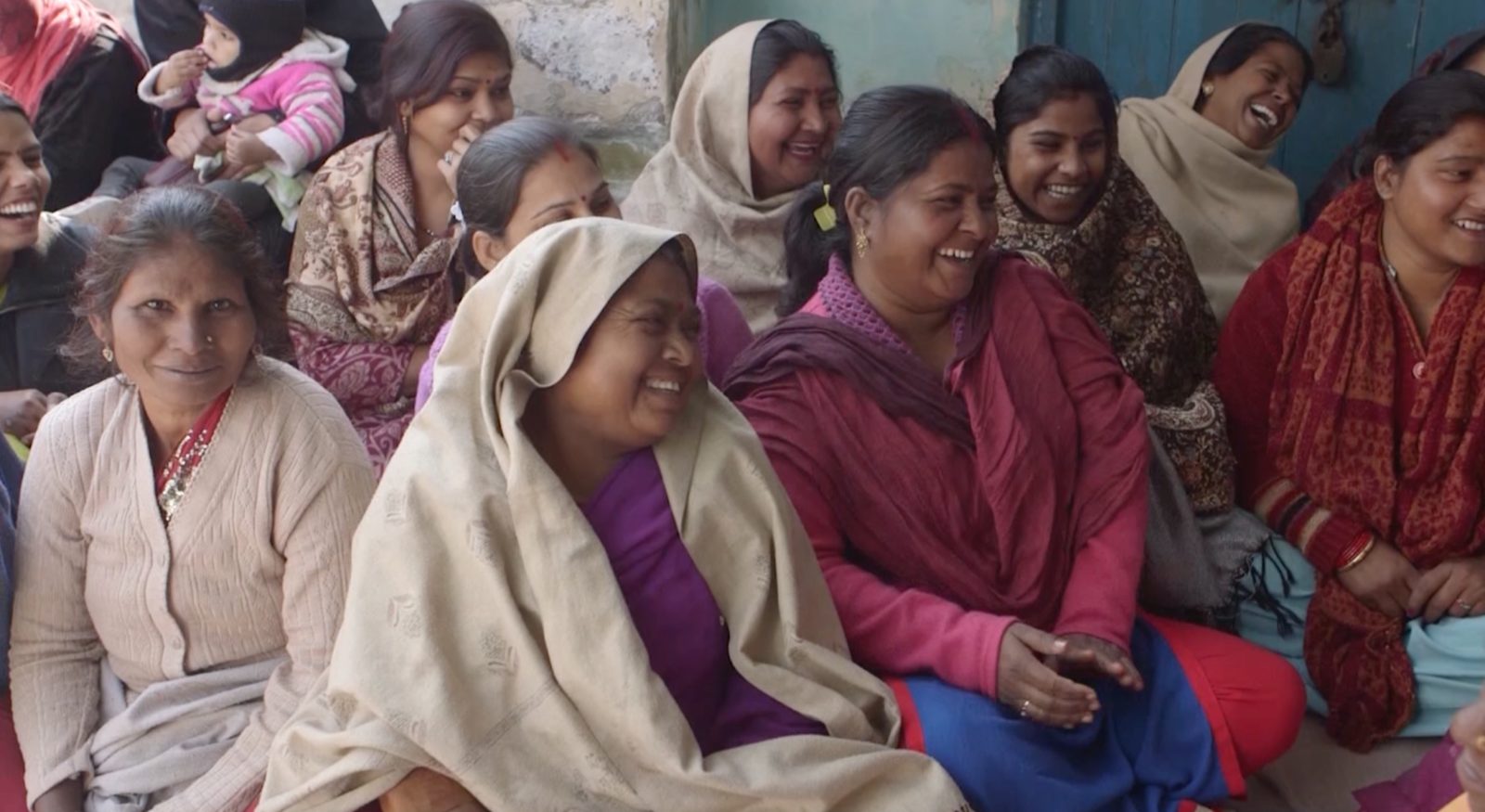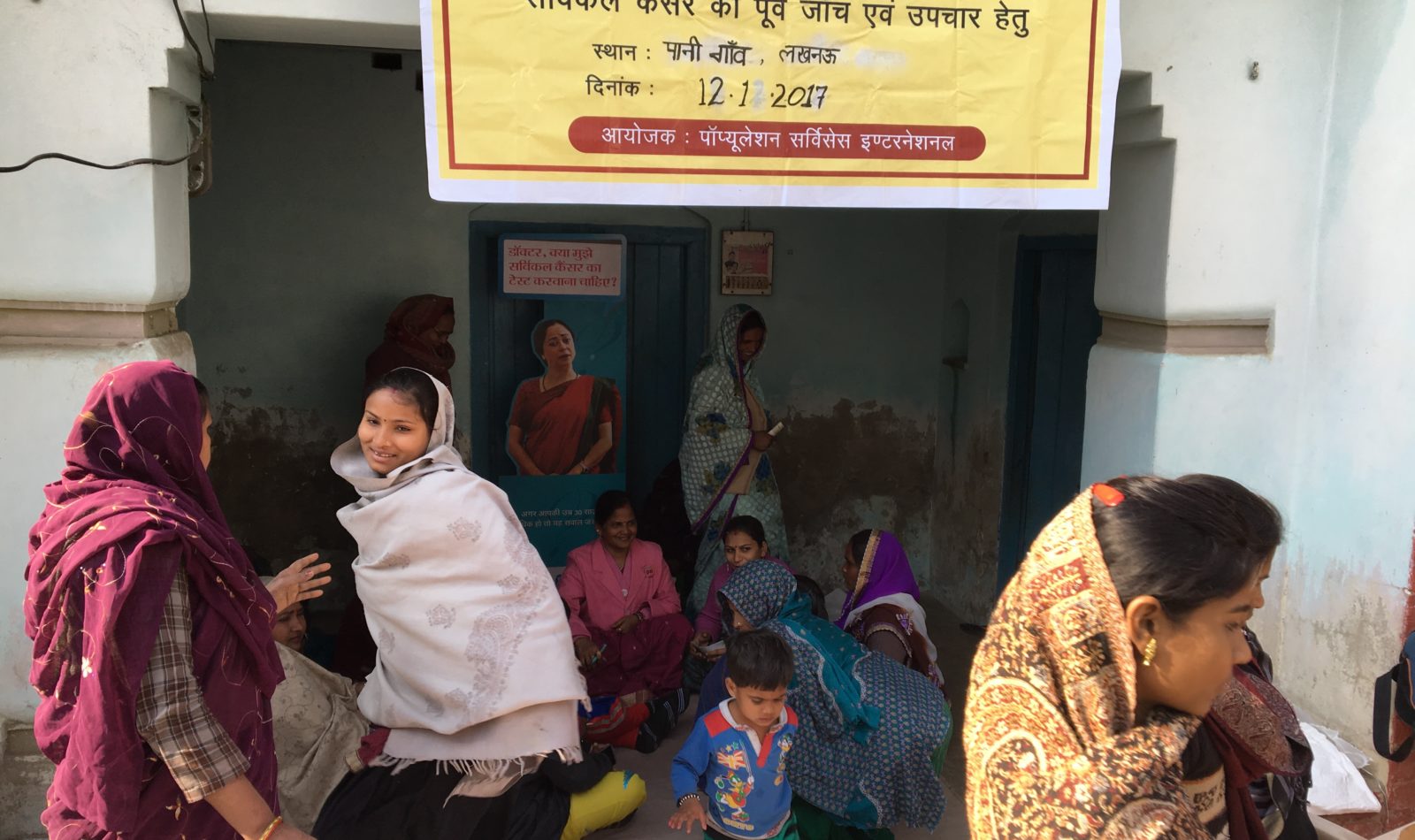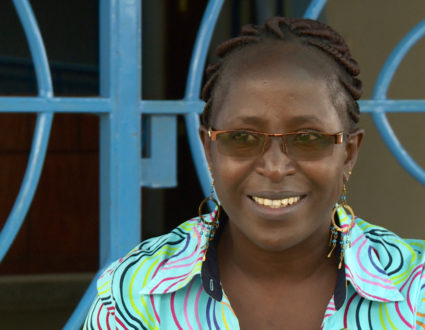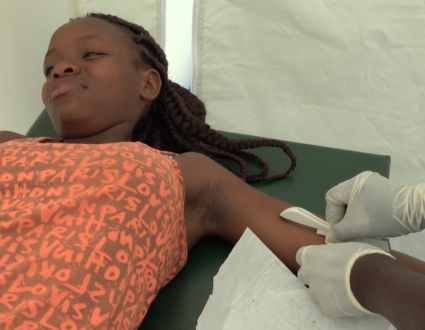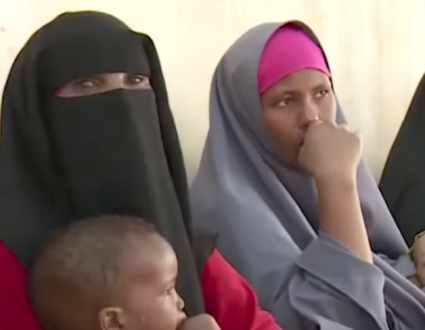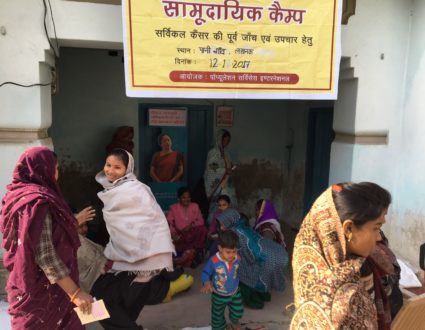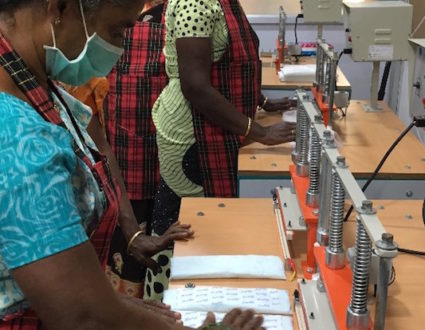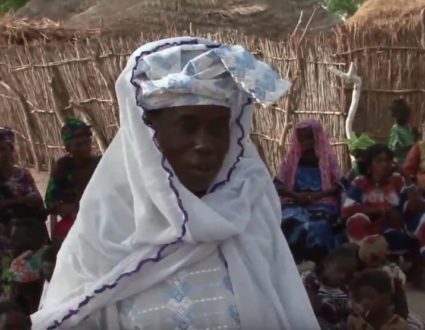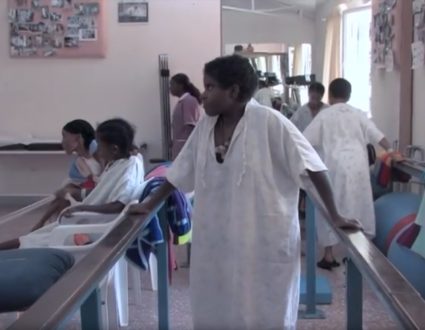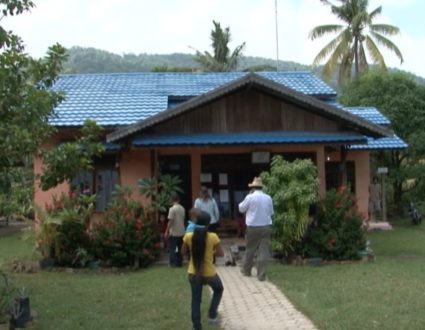JUDY WOODRUFF: Next: screening for cervical cancer in places where the disease rarely gets priority, amid other pressing problems.
Special correspondent Fred de Sam Lazaro has a report on one effort to prevent a disease that afflicts about 500,000 women across the world every year, but has the most deadly outcomes in India.
It’s part of his ongoing series Agents for Change.
FRED DE SAM LAZARO: In a village just outside Lucknow, India, recently, there was a rare opportunity for many women like 35-year-old Kiran Rawat. For the first time in her life, she saw a doctor. Her timing couldn’t be better.
WOMAN (through interpreter): There are some white spots that I found when I applied the medicine. It’s nothing to be afraid of.
FRED DE SAM LAZARO: The white spots are lesions. If left untreated, they can lead to cervical cancer in women usually between 30 and 60 years old. It is preventable and treatable if detected early.
Yet, more than half the cases worldwide are fatal, the vast majority of them in developing countries. In India, cervical cancer claims almost 70,000 lives a year, more than anywhere else in the world. That’s because, for millions of women here, seeing a doctor is the last resort, an often unaffordable luxury.
But a pilot program run by the global nonprofit Population Services International, or PSI, aimed to change that. The organization set up medical screening camps in Uttar Pradesh, India’s most populous and one of its most impoverished state. Sixty women came to this one. Four tested positive for the pre-cancerous lesions
DR. UMA SINGH: Pick up a nice ball of cotton, dip it in freshly made acetic acid solution.
FRED DE SAM LAZARO: In rich countries, Pap smears and follow-up treatment are the standard, but that’s neither affordable nor practical here. Instead, obstetrics professor Uma Singh demonstrated to students a low-tech, low-cost alternative being used in the pilot, a simple swab of the cervix with vinegar.
DR. UMA SINGH: So, after one minute, what you do is, do — do the inspection with good light. So, if you see a white area, you treat it by a procedure which is called cryotherapy.
FRED DE SAM LAZARO: Literally freezing it off.
DR. UMA SINGH: Yes, that’s the right word, freezing it off.
FRED DE SAM LAZARO: The lesions are a virus called HPV. The patient can’t see or feel it, and the immune system usually fights it off.
However, about one in every 100 infections turns cancerous. Vaccines are available and have proven effective in preventing HPV. But the cost puts them out of reach of most Indian women.
DR. SMITHA SINGH (through interpreter): Don’t be afraid. I will remove them. It’s a very simple thing, just 10 minutes.
FRED DE SAM LAZARO: The approach here is to remove any lesions right away. There’s no time or resources to monitor or biopsy, no assurance the women will return for follow-up treatment.
It is likely that in many, if not most cases, you are over-treating the patient.
DR. UMA SINGH: Yes, it may be a little bit of over-treating, but it has been seen that it doesn’t produce any substantial harm to the woman in relation to producing any long-term effects on the cervix.
FRED DE SAM LAZARO: But, often, women who test positive are scared off by the prospect of cryotherapy.
DR. SMITHA SINGH: They feel a big treatment will be done. And at times, they do not give consent for the cryo.
FRED DE SAM LAZARO: PSI canvasser Pinky Rawat says that happens for a simple reason.
PINKY RAWAT, Population Services International (through interpreter): They hear the word cancer and they say, if I do have cancer, what can I do? They get very scared when they hear cancer.
FRED DE SAM LAZARO: But even as there’s fear of cancer, getting women to the screening was a tough sell. These women complained that they need help for far more mundane health care issues, which no one provides.
WOMAN (through interpreter): My legs hurt all the time. Give me something for my gout.
FRED DE SAM LAZARO: Many women labor in the field and in households struggling to get by, and they neglect their own health.
SONI GUPTA, Population Services International (through interpreter): It’s affected my own family. It’s been three months since my mother died.
FRED DE SAM LAZARO: PSI worker Soni Gupta says early screening and treatment might have saved her mother, who died from cervical cancer.
SONI GUPTA (through interpreter): I feel terrible. Even though I work in this field for women, my own mother died.
FRED DE SAM LAZARO: Of the four women who tested positive for the pre-cancerous lesions, the social workers the next morning were able to find just one willing to go in and get treated.
WOMAN (through interpreter): I’m afraid. I have four children.
FRED DE SAM LAZARO: It was Kiran Rawat who needed a lot of coaxing and reassurance by a PSI outreach worker.
WOMAN (through interpreter): There’s nothing to worry about. It will just take a few minutes. And you have my phone number. You can call me for anything.
FRED DE SAM LAZARO: A few minutes later, accompanied by her husband, they were on the way to Dr. Smitha Singh’s clinic. Soon, the 10-minute procedure was done.
WOMAN (through interpreter): I was afraid at first.
WOMAN (through interpreter): But, today, no problems, right?
WOMAN (through interpreter): No problem today, but I didn’t sleep all night.
FRED DE SAM LAZARO: The hope is that she will help spread the word and a culture of preventive care, says Dr. Uma Singh.
DR. UMA SINGH: So, it is like motivating them to go for the checkup for prevention of cancer, for hypertension, for diabetes, for anemia and multiple things. Then you have to ensure that there have to be good facilities.
FRED DE SAM LAZARO: That much larger job of building a better public health system will take time, but PSI says its screening program is set to scale up. The state government has begun to train workers to offer it in all public health clinics based on results in the pilot, which concluded in January.
Seven thousand cases were positive for the pre-cancerous lesions. About two-thirds of these women had them removed.
For the PBS NewsHour, this is Fred de Sam Lazaro outside Lucknow, India.
JUDY WOODRUFF: Fred’s reporting is a partnership with the Under-Told Stories Project at University of St. Thomas in Minnesota.
The Luxury of Health
Cervical cancer afflicts a half million women across the world every year, but it’s most deadly in India. For many Indian women, seeing a doctor is the last resort and an unaffordable luxury. A pilot program aims to change that with a low-cost testing and simple procedure, but hurdles remain to get women in the door. Special correspondent Fred de Sam Lazaro reports.
